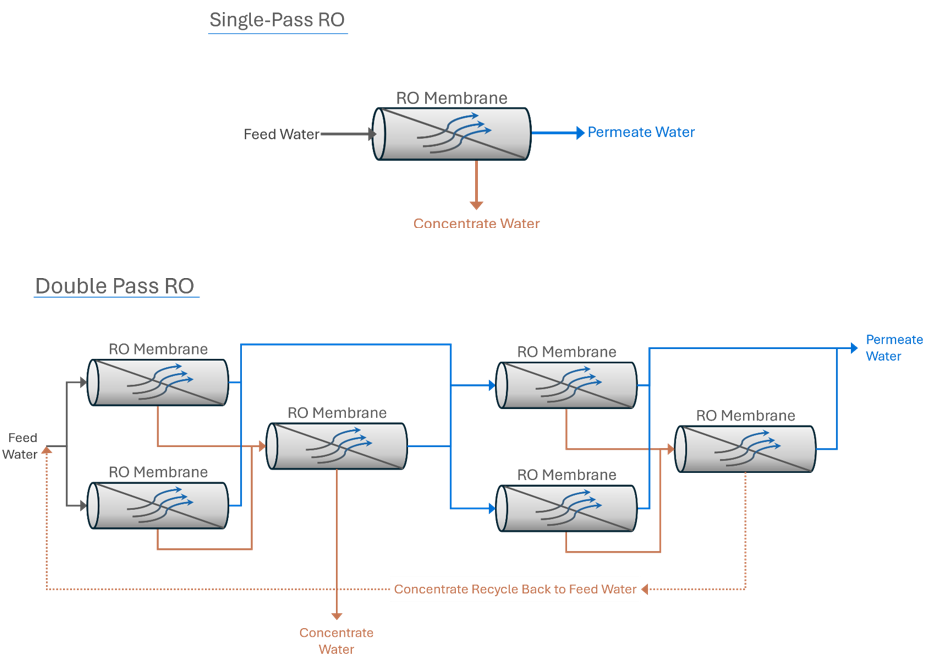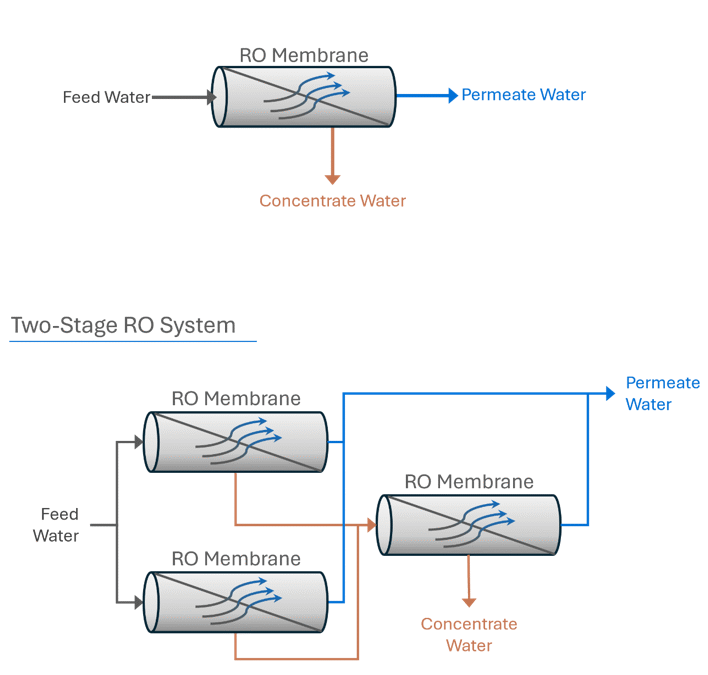Have you ever wondered if your habit of drinking reverse osmosis (RO) water could be the culprit behind those unexpected bouts of gas? You’re not alone.
Many people have found themselves questioning the impact of their water purification choices on their digestive health. With every sip of that crystal-clear water, you might be introducing changes to your body that are worth exploring. Understanding how something as simple as the water you drink can influence your gut health is crucial.
This article will delve into the potential relationship between RO water and gas, providing you with the clarity you need. Get ready to uncover surprising insights and discover whether your water choice might be affecting your comfort. Stick with us, and by the end, you’ll have a clearer picture of how to keep your digestion smooth and your health in check.
What Is Ro Water?
Reverse Osmosis (RO) water has become a common choice for many households looking for clean, purified water. But what exactly is RO water? Simply put, it’s water that has been filtered through a special process called reverse osmosis to remove impurities and contaminants. This ensures you’re drinking water that’s not only safe but also tastes better. Yet, this purification process raises an intriguing question: could RO water be responsible for causing gas?
How Ro Water Is Produced
RO water is produced through a meticulous filtration process. The water is forced through a semi-permeable membrane that blocks particles, bacteria, and other contaminants. It’s like giving your water a thorough scrub, stripping it down to its purest form. This method is highly effective, which is why RO systems are popular in homes and industries. Imagine the delight of sipping crystal-clear water, free from any unwanted extras. Yet, could this purity have unintended digestive effects?
Benefits Of Ro Water
Drinking RO water comes with a host of benefits. First, it significantly reduces the risk of waterborne diseases by removing harmful microorganisms. You can have peace of mind knowing your family is safe from contaminants. Additionally, it improves the taste and smell of water, making it more enjoyable to drink. Have you ever noticed how refreshing RO water feels compared to tap water? It’s like treating yourself to a fresh mountain spring. However, despite these advantages, some wonder if its ultra-clean nature might impact your digestion.
While RO water is celebrated for its purity, could it be stripping away essential minerals that aid in digestion? Is there a balance between cleanliness and health that we should consider? These are questions worth pondering as you choose the best water for your household.
Common Concerns About Ro Water
Reverse Osmosis (RO) water is popular for its purity. Some people worry about its effects on health. Concerns arise about RO water causing gas or other issues. Let’s explore these common concerns.
Potential Health Issues
Some people believe RO water causes gas or bloating. RO water removes impurities, including some minerals. This process makes the water very pure. Drinking very pure water may upset some stomachs. Sensitive stomachs might experience mild discomfort. This is not common for everyone.
Nutrient Deficiency Myths
Many myths surround RO water and nutrient loss. People think RO water removes essential minerals. This can lead to nutrient deficiencies, they believe. RO water does remove some minerals. Yet, most nutrients come from food, not water. A balanced diet provides necessary minerals. RO water alone does not cause deficiencies.
Gas And Digestive Health
Gas in the digestive system can cause discomfort and embarrassment. Understanding its causes is crucial for maintaining good digestive health. Water intake is an essential factor in digestion. But can RO (Reverse Osmosis) water affect gas production?
Causes Of Gas
Gas forms in the digestive tract during digestion. It happens when the body breaks down food. Swallowing air when eating or drinking also contributes to gas. Certain foods, like beans and cabbage, are known culprits. They contain fibers that ferment in the gut. This process releases gas.
Impact Of Water On Digestion
Water plays a vital role in digestion. It helps break down food and absorb nutrients. Proper hydration can prevent constipation. Reverse osmosis water is often free of impurities. Some believe it might affect digestion differently.
RO water lacks minerals found in regular water. But it doesn’t directly cause gas. It can sometimes alter gut flora balance. This change might affect digestion for some people. Yet, the effect varies among individuals.

Credit: puretecwater.com
Can Ro Water Lead To Gas?
RO (Reverse Osmosis) water is popular for its purity. Some people worry that drinking RO water may cause gas. This topic often sparks curiosity and debate. Understanding the science and expert opinions can shed light on this matter.
Scientific Evidence
Research on RO water and gas is limited. RO water removes impurities and minerals. Some believe this may affect digestion. Studies don’t show direct links between RO water and gas. More research is needed to confirm any connection.
Experts’ Opinions
Experts have diverse views on RO water. Some say mineral loss can impact digestion. Others argue purified water should not cause gas. Experts agree that individual reactions vary. Each person’s digestive system responds differently.
Comparing Ro Water With Other Water Types
When considering the impact of RO (Reverse Osmosis) water on your digestive system, it’s important to compare it with other types of water you might consume daily. Each type of water has its unique properties, and understanding these can help you make informed choices. Let’s dive into how RO water stacks up against tap water, bottled water, and spring water.
Tap Water
Tap water is the most accessible option for many. It’s treated to remove harmful contaminants, yet it retains minerals like calcium and magnesium. These minerals can contribute to your digestive health. However, have you ever wondered about the chemicals used in the purification process? These might sometimes cause stomach discomfort.
Consider your local water quality reports. They can shed light on what’s really in your tap water. It’s fascinating how regional differences can impact your water experience!
Bottled Water
Bottled water often appears as a convenient choice, especially when you’re on the go. But have you thought about what’s really inside? Some bottled water is simply filtered tap water, while others come from natural springs.
If you’re choosing bottled water for its taste, be mindful of its mineral content. These minerals can affect your digestion differently than RO water. Plus, the environmental impact of plastic bottles might make you reconsider your choice.
Spring Water
Spring water is valued for its natural origin and mineral richness. It’s often sourced from protected underground springs, offering a unique taste and health benefits. However, its mineral content varies, which can influence your digestive comfort.
Do you enjoy the crisp taste of spring water? It’s intriguing how the earth’s natural filtration process contributes to its purity and flavor. But remember, the mineral content might be too high for some sensitive stomachs.
Comparing these water types reveals the complex nature of water consumption and its effects. Have you considered how your water choices might impact your digestive health? Whether you prefer RO water or another type, being informed can help you optimize your hydration and well-being.
Tips For Choosing The Right Water
Choosing the right water is essential for your health. Water quality can affect digestion. Some people wonder if RO water causes gas. It’s crucial to understand water quality and diet balance. This helps in selecting the best water for your needs.
Evaluating Water Quality
Water quality matters for your health. Check for impurities and contaminants. RO water removes many of them. Ensure the filtration system is efficient. Regular testing of water can provide reassurance. Clean water supports digestion and overall health.
Balancing Minerals In Your Diet
Mineral balance is vital for your body. RO water removes minerals along with impurities. Consider mineral supplements if needed. A balanced diet can compensate for lost minerals. Pay attention to your body’s needs for optimal health.
Public Perception And Misconceptions
Many people worry about the effects of RO water. Some believe it causes gas. This perception stems from myths and misunderstandings. RO water is popular due to its purification benefits. Yet, doubts linger about its health impact. These doubts often arise from public myths. Understanding these misconceptions can provide clarity.
Addressing Common Myths
One myth is that RO water causes digestive issues. Gas being a common concern. This belief lacks scientific backing. RO water removes impurities. It does not add harmful elements. Digestive problems are typically linked to diet. Not water purification methods. Another myth is that RO water lacks minerals. Some think this leads to health problems. RO water indeed removes certain minerals. But this doesn’t mean it’s harmful. Most diets provide sufficient minerals. RO water complements a balanced diet.
Role Of Media In Shaping Opinions
Media plays a key role in shaping public views. Often, sensational stories emerge about RO water. These stories can spread false information. They may focus on isolated incidents. Rather than factual evidence. This can lead to widespread misconceptions. Headlines can be misleading. They may not reflect scientific studies. People trust media sources for health information. It’s crucial for media to report accurately. Misleading stories can cause unnecessary fear.

Credit: www.simpurelife.com

Credit: www.simpurelife.com
Frequently Asked Questions
Can Drinking Ro Water Cause Gas?
RO water typically does not cause gas. It’s free from impurities and contaminants. However, individual reactions can vary. If you experience discomfort, consult a healthcare professional. It’s essential to ensure RO systems are well-maintained for optimal water quality.
Is Ro Water Safe For Sensitive Stomachs?
Yes, RO water is generally safe for sensitive stomachs. It’s purified, removing impurities that may cause digestive issues. If you have chronic stomach problems, consult a doctor. Regular maintenance of the RO system ensures safe consumption.
Does Ro Water Affect Digestion?
RO water does not usually affect digestion negatively. It is clean and free from contaminants. Ensure the RO system is properly maintained. If digestive issues persist, consider consulting a healthcare professional.
How Does Ro Water Differ From Tap Water?
RO water is purified, removing impurities and contaminants. Tap water may contain minerals, chemicals, and impurities. RO systems ensure cleaner water. Proper maintenance is essential for optimal purification.
Conclusion
RO water is generally safe and healthy. It usually doesn’t cause gas. Some individuals may experience minor digestive changes. This is often due to personal dietary adjustments. Listen to your body. If discomfort arises, consider dietary factors. Consult a healthcare professional if needed.
Always ensure your RO system is well-maintained. Clean filters regularly to ensure water purity. Understanding your body’s response is key. Everyone’s digestive system reacts differently. Stay informed and make choices that suit your health. Your well-being matters most. Hydrate wisely and enjoy the benefits of pure water.

Hasan Al Sarker is a Reverse Osmosis Specialist. He has worked for many years to ensure safe drinking water for all. His research paper has been published in several journals, including Issue, Medium, and Slideshare. He is recognized as a water doctor among specialists though he did not attend medical college.
Besides working as a researcher of reverse osmosis technology, he is also very fancy with the kitchen and cooking. His guides are reading thousands of people every day. As a head of content, he is responsible for all the published articles at RO System Reviews.

